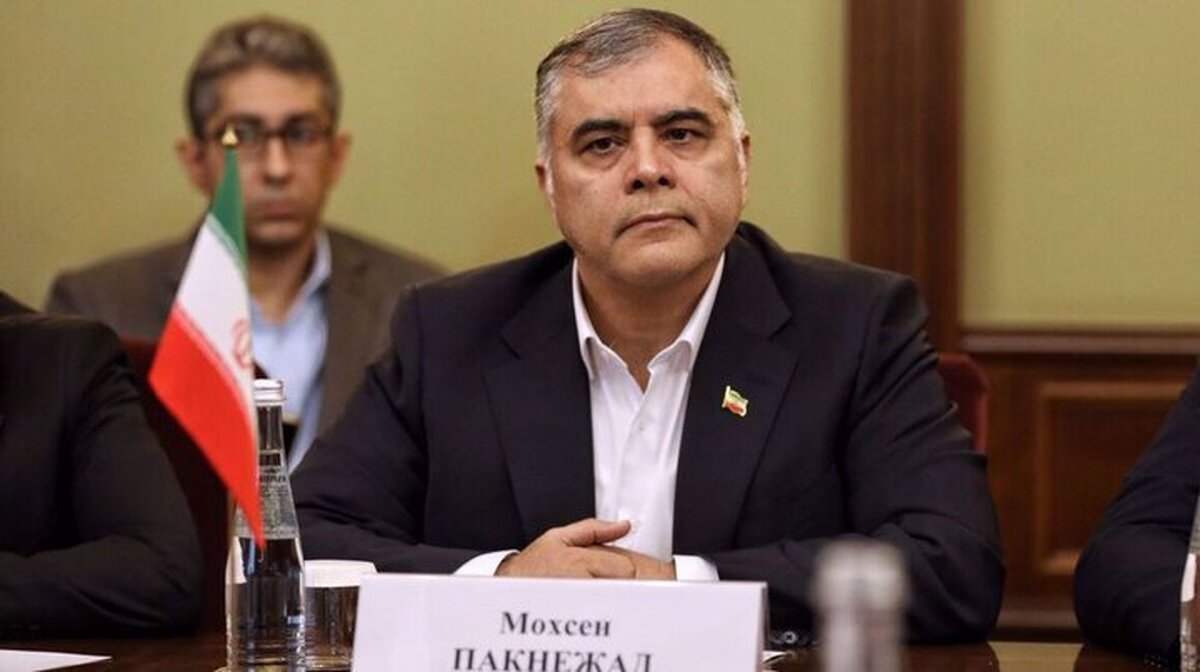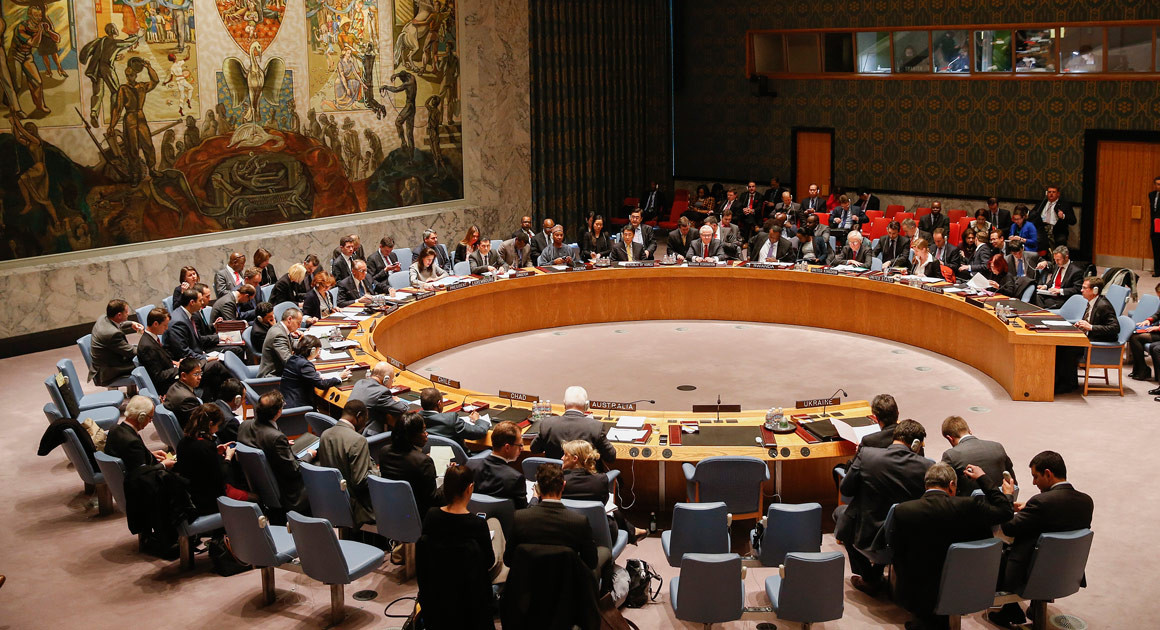
UN to Meet on North Korea as U.S. Confirms Rocket Was ICBM

EghtesadOnline: The United Nations Security Council will hold an emergency meeting later Wednesday after the U.S. confirmed North Korea’s rocket launch on July 4 was its first intercontinental ballistic missile.
As North Korean leader Kim Jong Un bragged about sending more "gifts" to U.S. President Donald Trump, South Korea and the U.S. announced Wednesday they had conducted a joint ballistic-missile drill in waters off the eastern coast of the Korean peninsula, according to Bloomberg.
With Secretary of State Rex Tillerson calling North Korea’s actions a “new escalation of the threat” to the U.S. and its allies, the UN is set to issue a condemnation of the missile test, which comes in defiance of international sanctions. Still, with China and South Korea also calling for caution, and urging fresh efforts to entice North Korea to talks, the prospects for strong action appear limited.
Kim’s progress toward acquiring missiles that can carry a nuclear warhead to the U.S. mainland also show how efforts to rein him in -- from international sanctions to U.S. and Chinese pressure -- have not worked. Even so, Tillerson called for “global action” to stop a "global threat.”
“Any country that hosts North Korean guest workers, provides any economic or military benefits, or fails to fully implement UN Security Council resolutions is aiding and abetting a dangerous regime,” he said in a statement.
"Denuclearization is the goal of the UN while nuclearization is the goal of the North Korea," said Cui Liru, who was a China counselor at the UN. "The UN could issue more sanctions and even put more pressure on Pyongyang with military exercises, but Kim will not give up his goal until the major powers address his security concerns,” said Cui, a former president of the China Institute of Contemporary International Relations.
G-20 Summit
Labeling the rocket an ICBM reflects a U.S. assessment that North Korea now may be capable of striking the U.S. -- possibly Hawaii or Alaska -- though it’s believed to be some way from the capability to deliver a nuclear payload to the U.S. mainland. South Korea also said the missile was an ICBM, though it added it couldn’t confirm if it was successfully tested.
The issue will dominate this week’s Group of 20 summit in Germany, where Trump is due to meet with Chinese counterpart Xi Jinping. Trump has already indicated in recent weeks he believes China is not doing enough to curtail its neighbor and ally.
“Trade between China and North Korea grew almost 40% in the first quarter. So much for China working with us - but we had to give it a try!” Trump said Wednesday on Twitter. A day earlier on the social-media platform, he said, “Perhaps China will put a heavy move on North Korea and end this nonsense once and for all!”
“Ultimately, Trump’s policy of preventing a North Korean ICBM has failed, and the countries central to resolving the North Korean nuclear issue do not seem to agree on the best way forward,” said Andrea Berger, a senior research associate at the Middlebury Institute of International Studies at Monterey, California. “In fact, they are arguably more divided than ever.”
Kim is "firmly determined and committed" to test an ICBM that can reach the U.S. mainland within this year, the state-run Korean Central News Agency said on Wednesday. It said the ICBM launched on Tuesday was capable of carrying a newly-developed, large-sized nuclear warhead, and was tested for re-entry capability.
‘Package of Gifts’
Estimates have varied on the altitude the missile achieved, though South Korea and Japanese officials have put it around at least the 2,500 kilometer (1,553 mile) mark. It flew for approximately 40 minutes, or about 930 kilometers.
Kim said the U.S. must be upset with the "package of gifts" he sent for its Independence Day and plans to send more in future, the KCNA report said. He won’t put his nuclear and ballistic missiles on the negotiating table unless the U.S. withdraws its nuclear threats.
While China and South Korea favor talks to lower tensions with North Korea, the U.S. insists negotiations can only happen if Kim halts his nuclear program, while Trump has said military action is one option for dealing with the regime.
The U.S. and South Korea test-fired missiles into territorial waters on South Korea’s east coast, the U.S. Pacific Command said in a statement. “The launch continues to demonstrate that North Korea poses a threat to the United States and our allies,” Pentagon spokeswoman Dana White said in a separate statement. “Together with the Republic of Korea, we conducted a combined exercise to show our precision fire capability.”
China Tensions
Tensions are rising between Trump and Xi over a broad range of issues. In a call with the U.S. president this week, Xi complained about a "negative" turn in ties. The U.S. has in recent days announced a $1.3 billion arms sale to Taiwan, published a report ranking China among the world’s worst human-trafficking offenders and called on Beijing to let ailing Noble Peace Prize winner Liu Xiaobo seek cancer treatment abroad.
Australian Prime Minister Malcolm Turnbull called for China to step up pressure on Pyongyang, telling local radio on Wednesday “only China has the ability to bring North Korea to its senses.”
“China faces a lot of difficulties in managing North Korea but the position keeps on getting worse and the Chinese have the greatest leverage -- that’s a fact,” he said before departing for the G20 meeting.
“Now the question is how far are they prepared to allow North Korea to go down this road before finally they take the decisive action that they have the ability to take in a way that nobody else does and bring this reckless, dangerous regime to its senses.”



